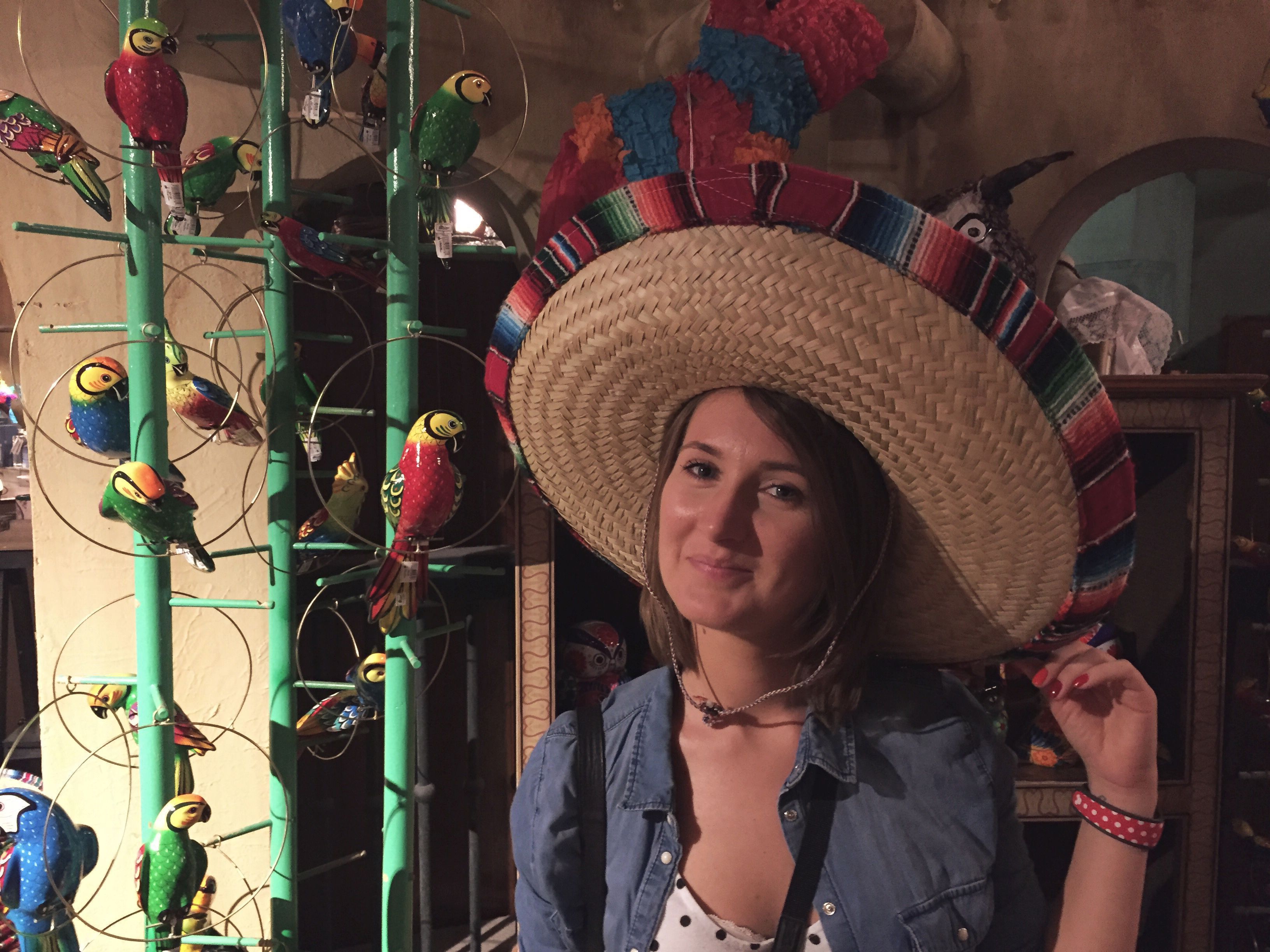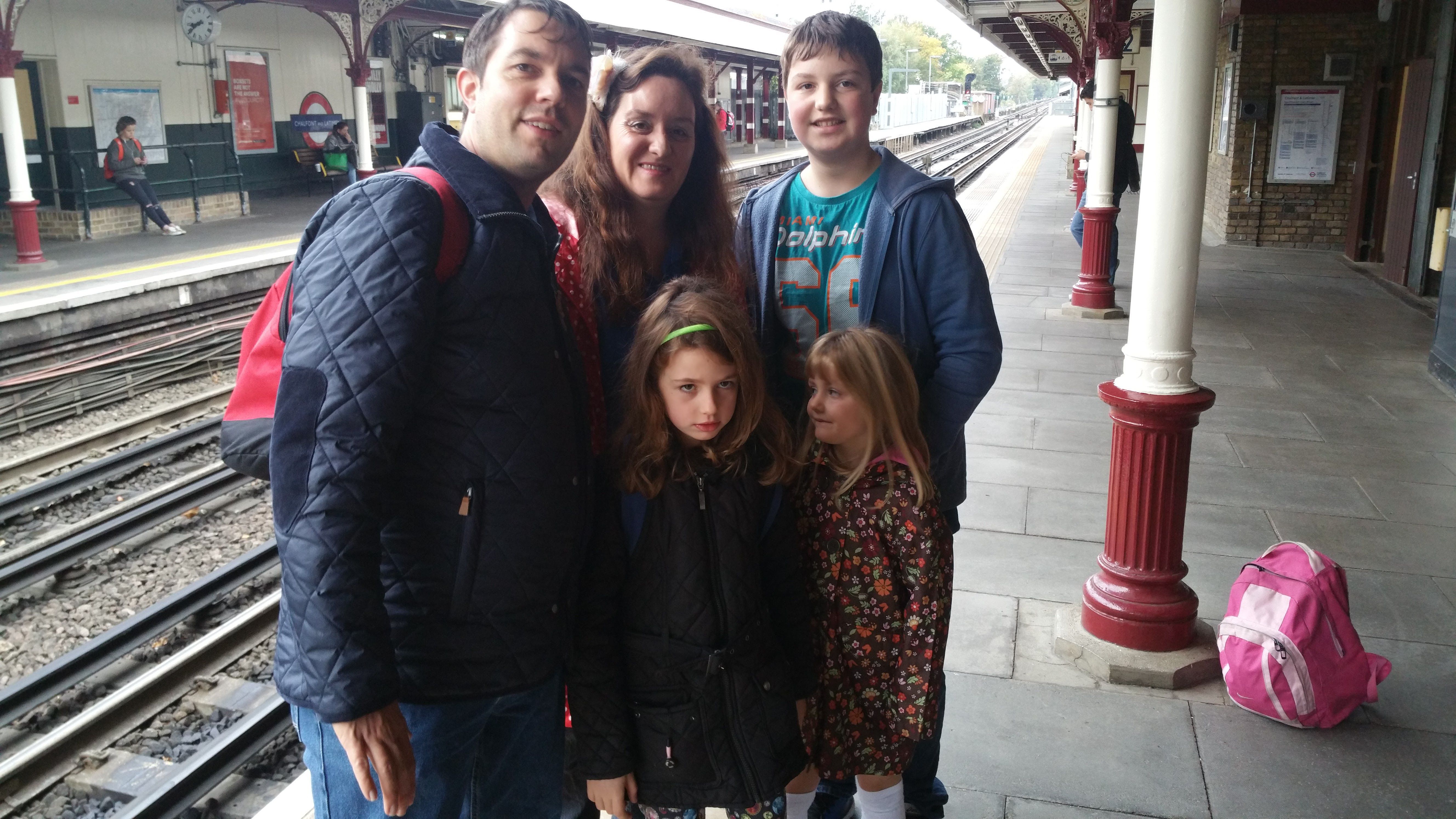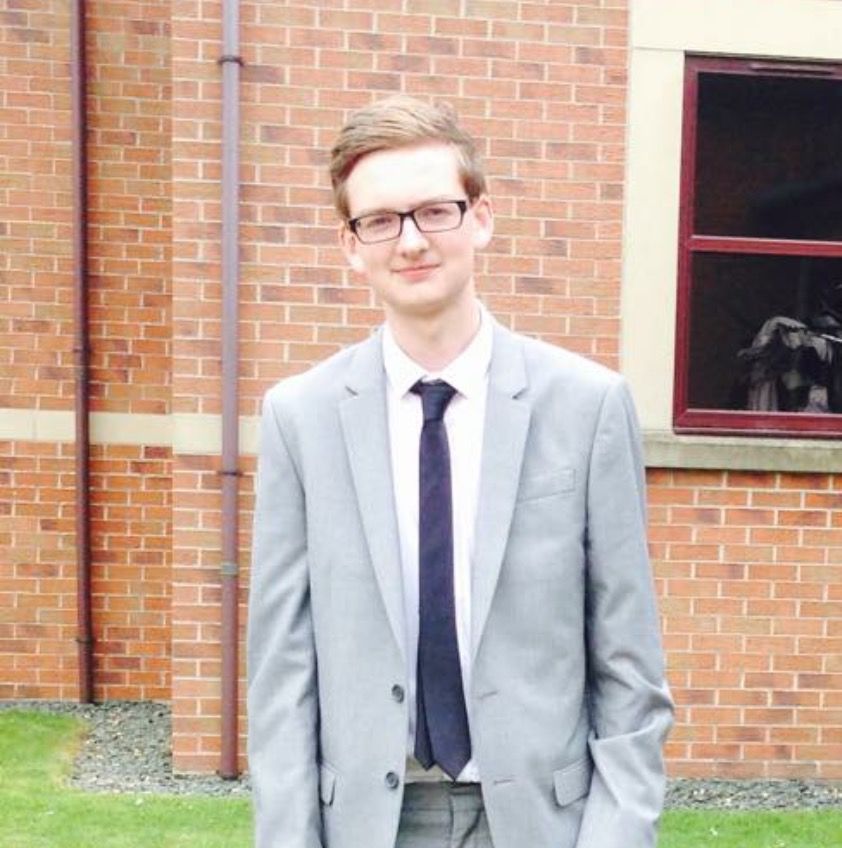Stop thinking about it and get going!
 In the spirit of ‘Linguists Anonymous’, I am Felicity Jones, 45, and I am mildly addicted to learning other languages. I speak French, German, Spanish, Italian and some Mandarin. I have used uTalk to learn some Danish, and my January challenge is Greek.
In the spirit of ‘Linguists Anonymous’, I am Felicity Jones, 45, and I am mildly addicted to learning other languages. I speak French, German, Spanish, Italian and some Mandarin. I have used uTalk to learn some Danish, and my January challenge is Greek.
Even as a child I would listen under the bed cover to a transistor radio beaming in words I could not understand from across Europe when I was meant to be asleep, and tried to make sense of the country names on foreign stamps. I then had the deeply unusual benefit of inspirational language teachers at school. Now, I travel a lot for my work and for fun, and as I always need to know how to say I am vegetarian – in Korean gogi bego is the most effective way to be clear about that – I have an excuse to learn at least a few words. Being able to say ‘thank you’ or ‘good morning’ makes travelling much more human.
What would I say to someone thinking about learning another language? Stop thinking about it and get going! The longer you think about it, the bigger the mountain seems. And don’t be afraid to communicate right from the off, even if you can only say hello or thank you – that’s why I love uTalk as it’s not just flat lists of words; you have to think, hear, speak even with your first words. And the Recall is an evil but effective section, the most like real life you can get to by yourself.
The most inspiring approach I have ever seen is Fluent in 3 Months by Benny Lewis. He uses ‘language hacks’ to accelerate confidence to SPEAK, an approach which transformed him from someone who thought they could not learn languages after school to fluency in seven languages and dabbling in more. Think like a child, open your ears, let yourself sound silly when you shape your mouth to make an unfamiliar sounds, ask someone how you say something in their language. Listen to the radio, read a children’s book, look at the signs in the airport and in shops, skype with native speakers and exchange your skills, go to a bar. Above all, speaking another language is only ever about connecting with someone else, with a different culture, a different way of being, however fleetingly and enjoying it. And if you have any doubt, apparently language learning stimulates the same part of the brain as other pleasurable activity!
Felicity
Español en Florida? Por supuesto!
This year in November I went for my first trip in the USA. I was lucky enough to spend my birthday in sunny Florida and it was wonderful! But the story I want to share with you starts earlier than that, on our way. After a 10 hour long flight spiced with excitement, plans and anticipation we landed at Miami Airport. We went through a few security checks and at the last one, there was a nice man who greeted me in good Romanian after checking my passport. When I asked how it is that he knows Romanian, he said he visited our country not too long ago and he made great friends and saw beautiful places.
The stress of the airport was immediately relieved when I heard the Romanian words, and even more because they came from a native English speaker, who learned a few expressions in a language that he probably won’t have much use for except delighting Romanian citizens with “Bună ziua” and “Ce mai faci?”
Once we settled into our flat, we went for a walk to discover the city. My boyfriend is a native Spanish speaker and we always comment when we hear someone speaking Spanish on the street here in London, so when the situation occurred we did the same. Then another time. And another time. It’s pretty accurate to say that we heard more Spanish than English in Miami.
I was surprised when I was addressed questions in Spanish from a shop keeper when I wanted to pay for the shopping – I understood from some of the words and gestures that she was asking me if I needed a bag so I proudly replied, “No, gracias!” I immediately got an adrenaline rush from this first time speaking Spanish with a stranger – amazing! It was probably an ordinary conversation for her, but for me it felt like a very important step in my language learning.
We drove further north to Orlando where we noticed that Spanish wasn’t as popular, but you’d still hear it here and there. If you are passionate about languages, I strongly recommend Walt Disney World’s Epcot park – around a big beautiful lake there are many different “countries” with specific food and people that speak local languages, as well as buildings and shops decorated by the specific styles. We went for a Mexican lunch in a Maya pyramid and we got nachos on the house, which was pretty great.
One of the reasons travelling is so amazing is that you find yourself in many different situations and you just have to play it by ear and that’s really fun and exciting. Next time you travel, give our uTalk app a try and you’ll be able to chat with locals as well. Maybe even get free nachos, who knows?
Ioana
Why learning Persian made me feel Fanta-stic
Nancy Reynolds is a freelance writer from the USA, who’s currently working on a novel. In her spare time she studies Persian and has vocabulary contests with her teenaged daughter who has studied Latin, German, Mandarin and Ancient Greek. Here’s her language story…
 For some people, learning a foreign language is good for business, a school requirement or a necessity because of a move. For me, it started in eighth grade with French, but more recently, it was to understand some Iranian friends I made on the Internet. Although my friends all know English, when they wrote posts in Persian, I felt left out. Although the different alphabet seemed daunting, I had studied Cyrillic for Russian and had done well, so I figured I could learn another alphabet. One reason I keep at it is to be able to read more and understand more of the Persian in movies.
For some people, learning a foreign language is good for business, a school requirement or a necessity because of a move. For me, it started in eighth grade with French, but more recently, it was to understand some Iranian friends I made on the Internet. Although my friends all know English, when they wrote posts in Persian, I felt left out. Although the different alphabet seemed daunting, I had studied Cyrillic for Russian and had done well, so I figured I could learn another alphabet. One reason I keep at it is to be able to read more and understand more of the Persian in movies.
A rewarding aspect of learning any foreign language is to understand another person. Values and concepts can be a direct result of the kind of language a person uses. Persian past tenses can distinguish between whether the life of a person in the past is still relevant today or not. We don’t have that in English. The term for a double bed in Italian is “letto matrimoniale,” implying that a person shouldn’t be sleeping in such a bed if not married. Which verb for “to be” you use in Spanish to tell someone she looks good will reveal whether you mean all the time or just today.
One of my greatest challenges in learning Persian is having to do it outside of a classroom. My friends are very busy or want me to help them with English, so I get little practice with spoken Persian. EuroTalk has made a difference because it is fun and I can use it whenever I want. The promotional assertion that it is good for five minutes or for hours of learning is quite true.
Ioana at EuroTalk asked me what my favorite word in my favorite language is, but I don’t think she was expecting the answer I have. It is “love” in English. To choose my favorite word in Persian is a challenge! I guess it would have to be “salam”, which means “hello”. Why? I have learned hello in many languages.
It is a thrill to greet someone in his or her language, get a stunned expression and then a broad smile. Such a simple word says I care about communication enough to step outside of my comfort zone.
Sometimes a funny, weird or awkward situation has occurred when I used a foreign language with a native or another speaker. In French I unintentionally propositioned a friend! Fortunately, he knew what I meant. Two delightful moments speaking Persian with natives were when I asked “Khoobi?” It is the casual way to say “How are you?” They were quite impressed.
A fun triumph, though, was reading the Persian on a soda can in a friend’s photo. Even though some of the letters were obscured, I still could read the well-known brand name: Fanta. I’ll drink to that.
Why I think languages are Lingotastic
Sarah Barrett from Lingotastic runs language classes for children and families, using music, crafts, puppets and bubbles – it sounds so much fun we might have to go and check it out ourselves! Here’s Sarah’s language story…
On my first visit to Germany to visit my husband Maik’s parents, I had a few language misunderstandings.
One day we were in Große Straße in Osnabrück and I had to ask Maik what a travelling Bratwurst (“Riesenbratwurst”) was… it actually said “Reisenbratwurst”, which means giant Bratwurst. So I still don’t know what a travelling Bratwurst is.
A few years later I was at church in Germany listening to the preacher. I could not understand why he was talking so much about toast… he was actually talking about trost (an old German word for “comfort”)!
Maik and I got married in Germany, but they didn’t believe I understood what was going on, so we had to have a translator!
When my youngest daughter started school (two years ago), I set up some language classes for families as Lingotastic. As a busy mum, language learning hadn’t been a priority for a long time, but we had passed on German and French to our children, and I wanted to encourage other families to do this too. At Lingotastic we have six weeks of French, German or Spanish. We use simple songs, crafts, a story, puppets and bubbles to help little ones to tune into that language. It was tricky for me at first to separate the languages, but it came with practice.
I then wanted a challenge, so as a family we learned a bit of Mandarin and some Mandarin songs. We then delivered a class in the local library and also in my daughter’s school reception class.
We heard about the EuroTalk Junior Language Challenge at Easter and my daughters thought they might like to join in. They learned a lot of Portuguese through playing the simple games. Then in the summer we heard EuroTalk were doing an Esperanto challenge, using the uTalk app. We really enjoyed it and had a few simple conversations in Esperanto around the dinner table. A few months ago my daughter asked why gato and gâteau are not the same thing, and said maybe we should have a gato gateau!
I love to greet people in their native language and people are often really happy to teach you how. I can often say good morning in up to five languages whilst walking my children to school!
Language learning only works for me if I can see a purpose. I love to get to know others and language learning is a great way to do this. I love to learn languages by playing apps like uTalk, playing with FlashSticks and singing along to songs in other languages.
If you want to follow our language learning journey check out www.Lingotastic.co.uk/blog
Sarah
Who needs football? I’d rather learn a language…
What’s your inspiration for learning a language? Today we’re hearing from Jack, a student and blogger at LangLearningBlog, on how he got addicted…
What inspired you to start learning French?
I never really was fond of languages, and I only studied French at school for a GCSE in a language – but bear with me! Soon I became almost addicted to language learning and I actually started enjoying learning completely alien and new vocabulary. Some thrive from obsessing over football fixtures and their league tables, others however (us!), are addicted to language learning. Let them obsess over futile fixtures. Meanwhile, we can be learning all the words a language holds!
What gives you motivation to continue learning?
Getting yourself motivated to learn new vocab or review flashcards is so difficult (especially when they’ve been stored at the back of a drawer for a few months!!).
My main motivation hack is that I keep my learning sessions short but regular. Not five minutes, but never over one hour, I find vocab literally pours into my brain doing regular learning sessions. Obviously there’s been days where I’ve done little or no vocab learning or reviewing, a.k.a ‘forgetting days’. Short bursts or an adrenaline-kicking 30 minutes are definitely my way forward to keeping motivated.
YouTube definitely helps, personally I think the short TED Talks speeches are great. They cover a huge range of topics, including language learning, and are never too lengthy. Beware though, or before you know it you’ll be watching pandas falling down slides and dogs dancing – one could say I have some experience getting distracted by YouTube.
What’s your biggest language learning challenge?
My learning routine has always been split into two halves: school and home independent study. School would give me the content, and my vocab learning at home would help me consolidate this and go further. Harder in practice though. One of the biggest challenges I had was the content that GCSE French covered. There was no ‘off the cuff’ speaking, nor conventional speaking topics (except food). The course seemed to shy away from practical topics that I’d actually need in France, like ordering bus tickets. So doing online reviewing programmes and not being able to translate some really simple stuff, it felt like learning the language was a waste.
What’s your favourite French expression?
On my visit to St-Etienne, France, I did work experience in a primary school. One night, some of the students on the work experience and teachers at the school went to a restaurant, and were all sat around this square table. Conversation slowed and we divided into two groups: English natives and French natives. It then turned to ;it’s raining cats and dogs’, then soon after all the students attempting to explain other idioms too. Trying to decode the French idioms to English was hard. I did manage to glean from the French idiom conversation ‘manger les pissenlits par la racine’. It translates literally as ‘eating the dandelions by the roots’, roughly meaning ‘pushing up daisies’. Obviously my favourite French expression to date – not because it’s unusual, but because it still reminds me of some of the French native’s facial expressions it got in return.
What do you find to be most rewarding about language learning?
Having the chance to visit the country is definitely the most rewarding thing about the entire years-long learning process. Before I knew it I was conversing with a bookshop assistant asking them to recommend books, and where I’d find them. I was explaining tasks to groups of primary school children and earwigging into conversations on the plane (apparently some French people really like TK Maxx).
After years of learning what felt like an artificial language, as I’d never heard it in action, all this learning had finally paid off, allowing me to not only have some great conversations, but also food – French crêpes and cheese cannot be described in words.
Jack
If you, like us, are now dreaming of crêpes (and cheese), and you’ve been inspired to learn some French, visit our website to see how we can help. Or download uTalk for iOS and start learning for free!






